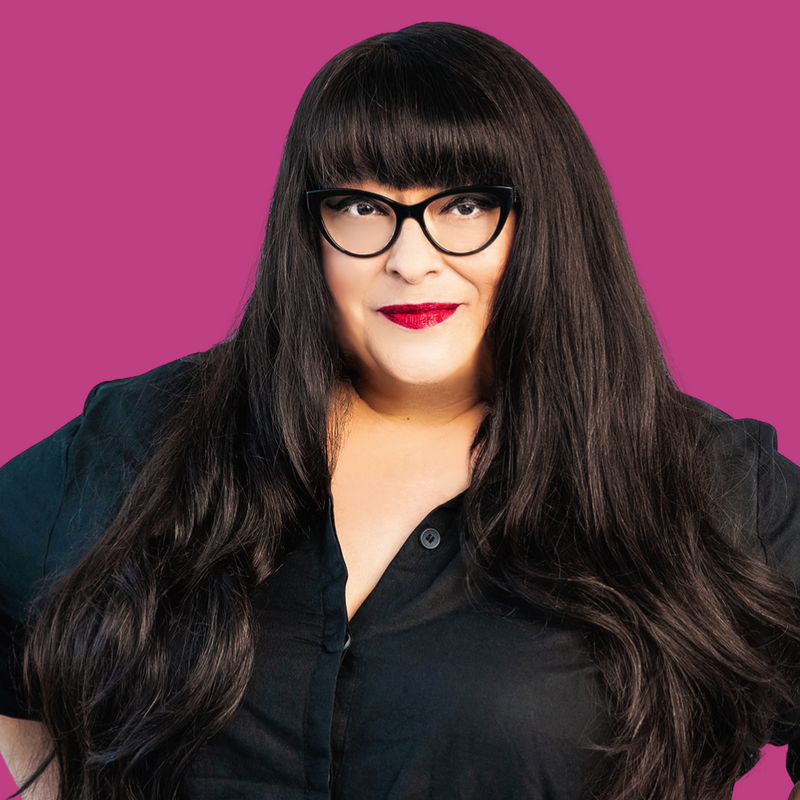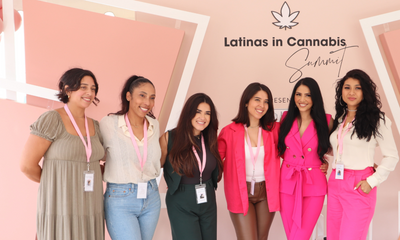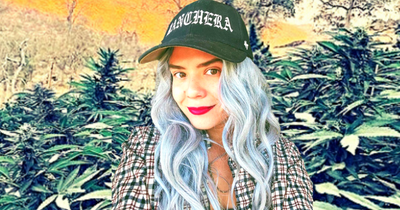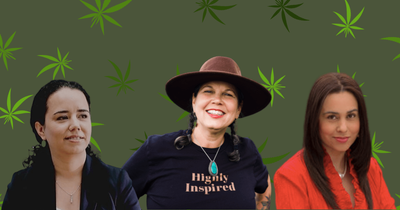Only a few short decades ago there was a green vendetta against Communities of Color use of cannabis where unfortunately many Americans are still facing time in prison for selling or consuming cannabis products.
It is certainly ironic how times have changed for the Cannabis industry and while there is still a long way to go for communities of color and cannabis use at least the horizon is visible.
As cannabis use and products are becoming mainstream in the U.S. disparities and denial of BIPOC Cannabis businesses are very much alive. BIPOC-owned cannabis businesses usually face lack of access to capital, navigating confusing state and local regulatory systems and negative societal stereotypes. That doesn't mean there isn't a large accepting Latinx cannabis community who are uplifting and changing the conversation to increase visibility for these owners.
From podcasts like “Marijuanera” brought to you by well-known Latinx podcast host Mala Munoz to Xicali products made with CBD by Chelly Xicali to Cannabispreneur and Latina investor Christine De La Rosa. You can read about more Latinas in the cannabis industry here and here.
Christine De La Rosa says “marihuana” with a Latina from Texas flare. She refrains from using the American pronunciation of “marijuana” throughout our conversation.
De La Rosa’s passion for cannabis is not superficial as society’s portrayal would make it to be. The medicinal plant, our ancestors used, known as marijuana, cannabis, pot, or its scientific name Cannabis sativa L quite literally saved her life. She lived with undiagnosed Lupus for three years until a pulmonary embolism almost killed this multi-preneur.
Lupus is an inflammatory chronic disease caused when the immune system attacks its own tissues literally your immune system turns against you. Four short decades ago it was a death sentence but now when detected it is treatable and more manageable.
She said after her medical emergency she was on 11 different medications including hard opioids for five years. She said she only felt worse. Although this California-native was surrounded by cannabis dispensaries, medical marijuana alternatives weren’t an option. Hard stigmas also surrounded her that were put in place by her family on cannabis use. This is common in our Latino families. She explained that when she left for college her mother made her views on it clear.
“The one thing my mother had told me was ‘whatever you do, like rob a bank, kill somebody, whatever you do– do not smoke marihuana because they are going to think you are a lazy Mexican,’' said De La Rosa.
While in college her Lupus attacked her heart, almost killing her a second time. According to the Lupus Foundation of America, lupus in Latinos and specifically Latinas is higher than any other ethnic group affected. She said her then roommate offered her a chocolate cannabis edible to help her with her pain. She said her pain was at “a level 10” and at this point her desperation pushed past the “lazy Mexican” stigma and all negative propaganda for relief. After testing cannabis use on herself, she stopped all medication and hospital visits in nine months. Since then De La Rosa has not used Lupus prescriptions such as Prednisone, Gabapentin, or Fentanyl patches that she used when she was in pain. For the last seven years she has treated herself only with marijuana.
She strongly voiced that the reason our Latinx community doesn’t look for alternative healing medicine and take the prescribed pharmaceutical medicine with debilitating side effects is because we are told by society that we are terrible people for wanting to use cannabis.
“Our ancestral medicine– that’s medicine our grandmothers, great grandmothers and great-great-grandmothers used,” said De La Rosa on the Latino’s right to use cannabis without stigmatization.
De La Rosa decided to leave her cushy job as a data architect for a major cell phone company to start her mission in the cannabis industry to change the Latino cannabis user’s narrative but most importantly make medicinal cannabis accessible to our people. She opened her first unregistered store thinking she’d only have 100 customers of which she knew personally and empower them on their medical healing journey. Her first three months in business she had 4,500 Brown and Black customers and she knew there was a need for people of color owned dispensaries where especially women of color felt comfortable buying cannabis rather than a white-owned dispensary.
She knew she had to tell her mother about her new life’s work to own a cannabis business since she was treating her Lupus with cannabis. She flew back home to California to tell her Mom over the holidays. She recounts how her Mom told her “sin verguenza” (without shame) and did not have a great reaction, but with time her parents are now her biggest supporters and help her with her business. She doesn’t blame her parents for their reaction.
“The way the propaganda from the U.S. happened is if you are Black and have cannabis you are a thug if you are Brown and have cannabis you are lazy,” De La Rosa explained the strong message society and the U.S. government had in the past.
She said having deep conversations with our Latinx/e families is where we start to change the narrative.
“It was never true that there was a war on drugs. It was a war on us. It was never true that it was a gateway drug to cocaine and heroin. It has always been plant medicine,” De La Rosa passionately states.
It is with education and telling our Moms, Abuelitas, Tias, Tios (Grandmas, Aunts, Uncles) and cousins that it was always our planta (plant) to use instead of what the U.S. government told us that is when the change occurs De La Rosa eloquently emphasizes.
She attributes her belief in the use of the ancestral plant to her family roots in Mexico which lies in the fact that many Mexican-Americans have a higher percentage of indigenous in their lineage even if they don’t recognize it. Specifically she traces her ancestry to the Purépeche indigenous tribe in the northwestern region of Mexico. When sick as a child her mother would drive her from San Antonio, Texas to Nuevo Laredo, Mexico where her great grandmother would treat her with teas and plants that later she recognizes as cannabis, peyote and ayahuasca.
De La Rosa is excited for the future generations of Latinx/e cannabis users in particular Gen Z. She said they are set to change the world in ways that we haven't seen before, especially in cannabis use. She loves that Gen Z are right on time in the acceptance movement of cannabis use in healing and in taking space as the new age curanderas otherwise known as healers.
In a world where hard opioids and other medication are prescribed to “mask pain” with no holistic health benefits De La Rosa argues that it feels great to consume cannabis especially when you know it is beneficial for your body not just remedying your pain. She has high hopes that Gen Z will not only change the internal narrative in the Latinx/e community on cannabis use but also change the government categorical definition of cannabis from a “schedule 1” drug to a “schedule 2” which would remove cannabis classification as a low medicinal benefit with high addiction rate to one with medicinal use and benefit. This would allow a lot of people to choose to heal themselves with cannabis rather than pharmaceuticals.
Despite informal cannabis research in the United States that shows medicinal benefits of cannabis use the FDA still stands by the statement that there is no medicinal use despite the Catch-22 that doesn't allow for extensive and federal funding for cannabis studies because it is a schedule 1 drug.
Conversations are increasing where government officials and agencies are talking about how they can destigmatize and empower people of color who want to break into the cannabis industry from San Diego to Sacramento, California. In late 2017, cities across the U.S. started implementing so-called “Cannabis Czars” where they implemented and laid the law of land for legal cannabis consumers and sellers including bridging the gap between the communities of color and city legislation.
De La Rosa explained as a chronically ill person it is not acceptable to be in pain for three hours or until the cannabis kicks in. Currently, every edible on the market is infused with food grade chemicals that taste bad so the unpleasant flavor is masked with sugars to make it more palatable. Also because it is masked with these chemicals and sugars it takes longer to hit the blood system. Her company The People’s Ecosystem and Unlockt invented a new way of delivering cannabis through novel protein technology that is wrapped into Toci Treats edibles. When ingested it protects the cannabinoids and terpenes from being diluted in your body. It goes straight to the blood system rather to the liver. It’s cheaper because you don’t have to use as much so you are saving more money. She proclaims it is more bang for your buck. But also help people with chronic liver issues to be able to ingest cannabis and help with their pain without stressing out the liver more.
Toci Treats is revolutionary as is a cleaner, safer, and more controlled edible experience that brings patients closer to the plant but especially in the BIPOC community where pharmaceutical pain relief is financially challenging and hard to access.
“It’s a huge breakthrough,” said De La Rosa.
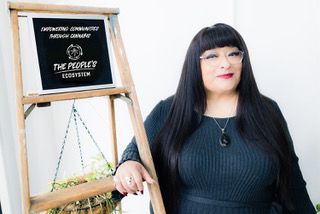
We Asked Her What Makes Her A BoldLatina
“I am in the cannabis industry when it still very much in the larger community and its still frowned upon to be Sitting front and center explaining to our communities what this is such an important medicine. I also think I am a BoldLatina because I am one of the very few CEOs in the cannabis industry that is a Latina when I first started I was one of two and now I think we are up to 15 maybe 20 CEOs and that is also very bold in an industry that is mostly white men. I believe in the power of Latina women which is why we hire them and try to put in our company thats why my COO is a Latina and make sure that we are running the money not just the DEI or human resources person.”
“I think it makes me a Boldlatina to be able to say that we need to be able fund our own folks and i think to be able to be a Latina in this space especially since there is still a huge stigma in the Latino/Latine/Latinx community and also I would hope there would be other Latina/Latino/Latinx people are going to be stepping into cannabis and taking our rightful place as owners of this medicine.”

